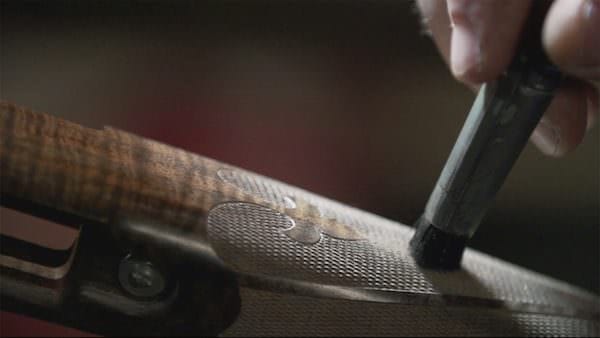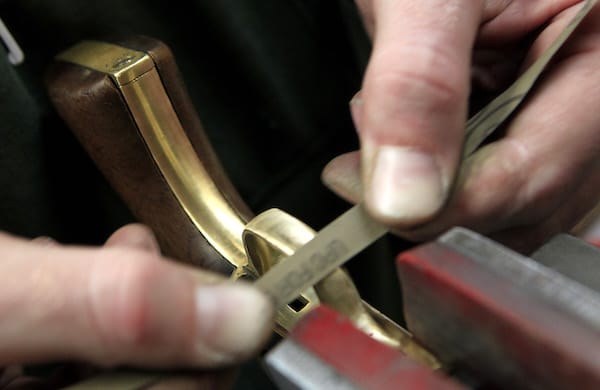by Jason J. Brown Note: This article was originally posted on NRA Blog


USA -(Ammoland.com)- The world of firearms provides an endless array of hobbies, from the shooting sports to collecting rare and unique guns. Firearms enthusiasts share a love for their collections like no other, meticulously poring over the fine details of what makes each gun special, upgrading and accessorizing their beloved firearms, and investing great deals of time and resources into their passion.
Building a reputable collection and honing your skills on the firing line are worthy ways for gun owners to spend their time. However, like all machines, firearms occasionally malfunction and suffer damage, requiring repair to bring them back to their proper fit and function.
Enter gunsmithing, the art of repairing, assembling and maintaining firearms. Gunsmithing traces its roots to the 1200s, where Chinese smiths created the world’s first firearms. Today, gunsmiths serve an important role in providing expert craftsmanship to the growing, record numbers of firearm owners, keeping their favorite guns running smoothly.
Delving into the art of gunsmithing can be fulfilling, and can broaden the expertise and skill set of even experienced shooters and powerhouse collectors. We examine a few reasons you might consider picking up the trade:
Joining a historic fraternity

From the dawn of firearms in China’s Song Dynasty, the manufacture and repair of firearms has developed and evolved at the hands of gunsmiths. Early gunsmiths, culled from the ranks of blacksmiths and woodworkers, often spent up to 400 hours producing a single gun, cutting their teeth as apprentices before establishing their own smithies.
As the technology expanded westward into Europe, evolutions in materials and manufacturing, coupled with the wartime demands of monarchs across the continent, pushed the art into the mainstream, transforming from a niche craft to an industry of its own. Gunsmiths were called upon to produce guns for the colonists in the New World, and continued to arm American settlers as they pioneered across the developing nation.
While an overwhelming majority of today’s firearms come from mass production assembly lines as opposed to being hand-wrought by skilled arms makers, the value of gunsmithing has not faded, as these experts perform an endless array of repairs and upgrades on firearms of all makes and models. The tools of the trade today are as far from the rudimentary beginning of gunsmithing as you can imagine, but the spirit of innovation is just as strong as it was when the world’s first firearms emerged from the hands of pioneering smiths – a spirit you can embody and ensure lives on through training as a gunsmith.
Truly understanding your firearms

Most experienced gun owners have a familiarity with their firearms, gleaned from hours of handling, shooting, field stripping, cleaning and reassembling. This intimate look inside the machine can provide insight into how guns work, but that familiarization has a natural terminus at varying degrees for each gun owner, particularly when reliable rifles and proven pistols suddenly stop being so dependable due to mechanical failure.
That’s when it’s time for the professionals to step in – the gunsmiths. Through extensive training and education, gunsmiths learn the most subtle nuances of a vast spectrum of firearms, understanding exactly how guns work at each level and building the skills to ensure those guns continue to work as designed, if not better.
For those who pride themselves on how quickly and deftly they can disassemble and reassemble their firearms, or those that want to be able to repair their own guns when maintenance issues arise, learning gunsmithing is the natural next step in the progression of mastering firearms.
Turning a hobby into a career

Firearms continue to be one of the United States’ most lucrative and burgeoning industries, as manufacturers increasingly develop and make new firearms to meet the record demands of customers. For aspiring hobbyists interested in learning how to expertly maintain this growing pool of firearms, what could be a fun set of skills to practice on the side could potentially become a means to produce income.
For those that don’t want to invest in gunsmithing as a full-time career, plying your newfound trade as a means of supplemental income is an option as well. Gunsmiths may decide to do odd jobs out of a home-based workshop, or simply work part-time for a gun dealer or larger gunsmithing operation. Either way, learning the trade not only produces valuable skills, but also can result in extra money in your pocket, all from doing something you love.
As more and more Americans invest in firearms and exercise their Second Amendment rights, the need for gunsmiths will continue to grow. Whether you’re looking to start a new career, or simply take the next step in bolstering your firearm acumen, the NRA offers gunsmithing training at four schools across the U.S., featuring short-term courses to aspiring gunsmiths in the spring and summer of each year. Click here for more information about NRA Gunsmithing Schools, the courses offered and more.
Check out this segment from NRA All Access featuring the story of a gunsmith:
